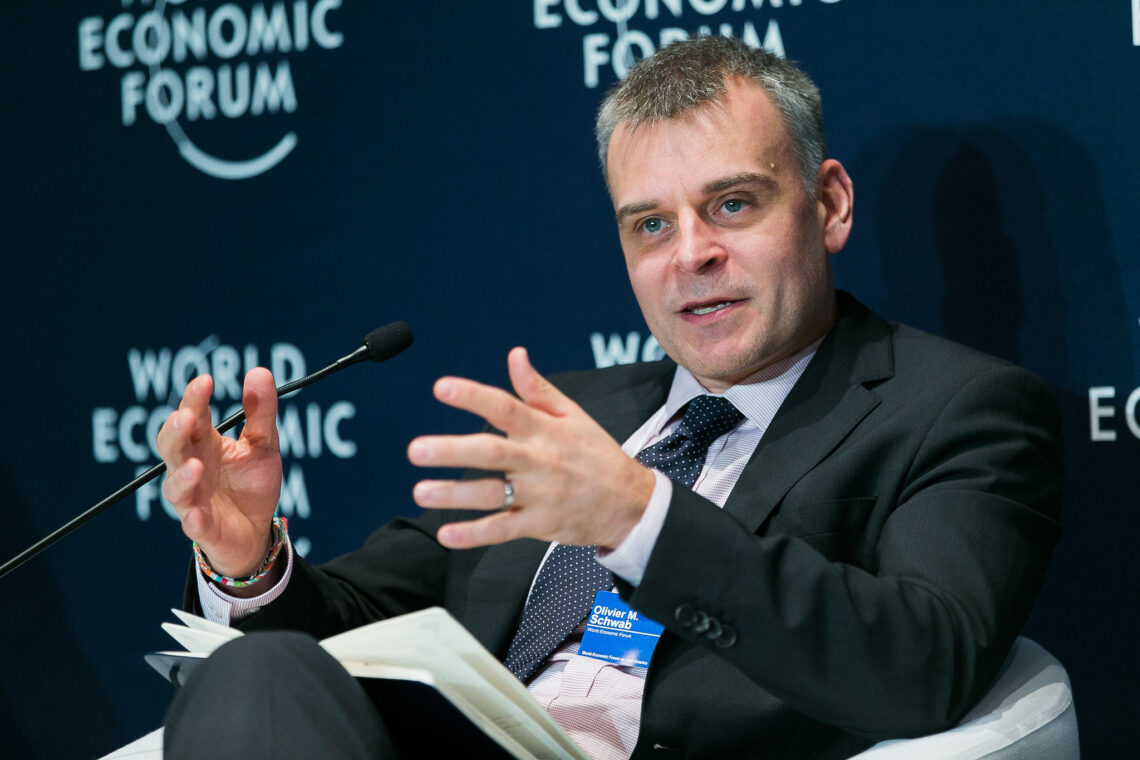There was further proof in 2023 – if it were needed – that the world is facing a climate emergency that requires urgent, coordinated action. Record temperatures, deforestation, rapid biodiversity loss – the message from our planetary systems was clear: act now, before it’s too late.
While there is no single solution to these interconnected challenges it’s become clear that breakthrough technologies, led by early-stage entrepreneurs who are as committed to impact as they are to generating a profit, can help countries hold back or adapt to the worst effects of climate change and deliver on the promises of the Sustainable Development Goals (SDGs).
But only if those who can enable their success rise-up to support them. Top of this list are providers of the venture capital that would allow these impact entrepreneurs to thrive, but which is currently in critically short supply.
Fortunately, members of the global community have decided to act. UpLink, a World Economic Forum initiative launched in partnership with Deloitte and Salesforce, is building an innovation ecosystem that supports early-stage start-ups to scale by connecting them to the resources, experts and vital funding they need to create a greener, cleaner, more equitable world.
With, according to some sources, 50% of the innovations needed to get the world to Net-Zero either in their infancy or yet to be invented, the importance of these impact entrepreneurs, green start-ups, whatever one chooses to call them (UpLink calls them ‘Top Innovators’) cannot be overstated.
For example, India-based Top Innovator S4S Technologies, uses solar-powered dryers to help smallholder farmers dehydrate excess fruit, vegetables, pulses and grains while preserving 85% of their nutrients. These are then sold as ingredients to the food and beverage industry, providing farmers with vital additional income. With approximately one-third of all food produced globally currently going to waste, the potential impact of S4S’ solution is huge. Pano AI, an American company that is responding to another environmental emergency: wildfires, is another great example. This start-up uses artificial intelligence to detect, verify and classify wildfire events in real-time, meaning firefighters can respond to threats faster than ever before.
Eco Panplas, a Brazilian start-up, recycles contaminated plastic without using a single drop of water, even recycling oils and labels that cling to the plastic waste that is choking the planet’s rivers and oceans. In a world that consumes 75% more resources each year than the earth can naturally regenerate, early-stage start-ups like Eco Panplas will play a crucial role in the shift to a more circular global economy.
Innovations like these, no matter how ingenious their technological solutions, cannot succeed in a vacuum. The entrepreneurial landscape is hard to navigate for any new business, but for impact innovators, who typically face longer product development times, higher up-front costs, and often operate in parts of the world where venture capital is either underdeveloped or non-existent, the terrain is even more hazardous.
Factor in the headwinds of an uncertain world economy and a global venture capital market that experienced a significant downturn in 2023, and you can begin to understand how challenging things are for early-stage entrepreneurs of every ilk, never mind those with business models focused on creating an environmental, economic or societal impact.
Thankfully, there are encouraging signs that the investment community is stepping up. According to recent GIIN figures, the worldwide impact investing market has grown to $1.16 trillion, the first time this estimate has topped the trillion mark. However, a mere 5% of this currently flows to early-stage companies, and only 2% supports ventures focused on nature and biodiversity. To close this gap, UpLink has brought together a network of ‘Top Investors’ to enable early-stage entrepreneurs to scale their ventures and maximize their impact.
This new class of fund managers understands the challenges faced by impact entrepreneurs and the importance of patient capital, blended finance and other innovative funding models to help them find pathways to growth. These investors are also helping even the playing field for female entrepreneurs and other underrepresented groups, like those operating in the developing world (who also happen to be on the frontline of the worst effects of climate change).
Katapult Ocean is one of these Top Investors. The Oslo-based fund, which supports start-ups with a focus on ocean sustainability, has already invested in eleven UpLink Top Innovators.
Large corporations are also taking action. Leading technology conglomerate, HCLTech, for example, has committed significant funds to UpLink to scale start-ups that are working to solve the global water crisis. And, Accenture now hosts its long-standing Circulars Accelerator program on UpLink, and is working alongside a community of circular economy entrepreneurs who are transforming methods of production and consumption and potentially unlocking $4.5 trillion in global economic value by 2030.
It’s having a tangible impact. Just one of these Top Innovators, Latin American start-up Kilimo, has saved over 70 billion liters of water by deploying its AI solution to help farmers irrigate their crops more efficiently. And while its technology benefits communities on the ground, Kilimo’s customers include corporations like Google, Microsoft, Coca-Cola and Intel, whose participation in water offsetting projects helps them become water neutral, while also boosting farmers’ incomes.
If it takes a village to raise a child, as the saying goes, then it will take entire ecosystems to propel these impact start-ups upwards and bring about the positive change we want to see in the world. We invite other purpose-driven start-ups, sustainability-focused investors and corporate partners to join us on this journey to unlock an entrepreneur revolution.
Olivier Schwab is a Managing Director at The World Economic Forum. This article was published as part of the World Economic Forum Annual Meeting 2024 discussions.
This article is content that would normally only be available to subscribers. Sign up for a four-week free trial to see what you have been missing.





